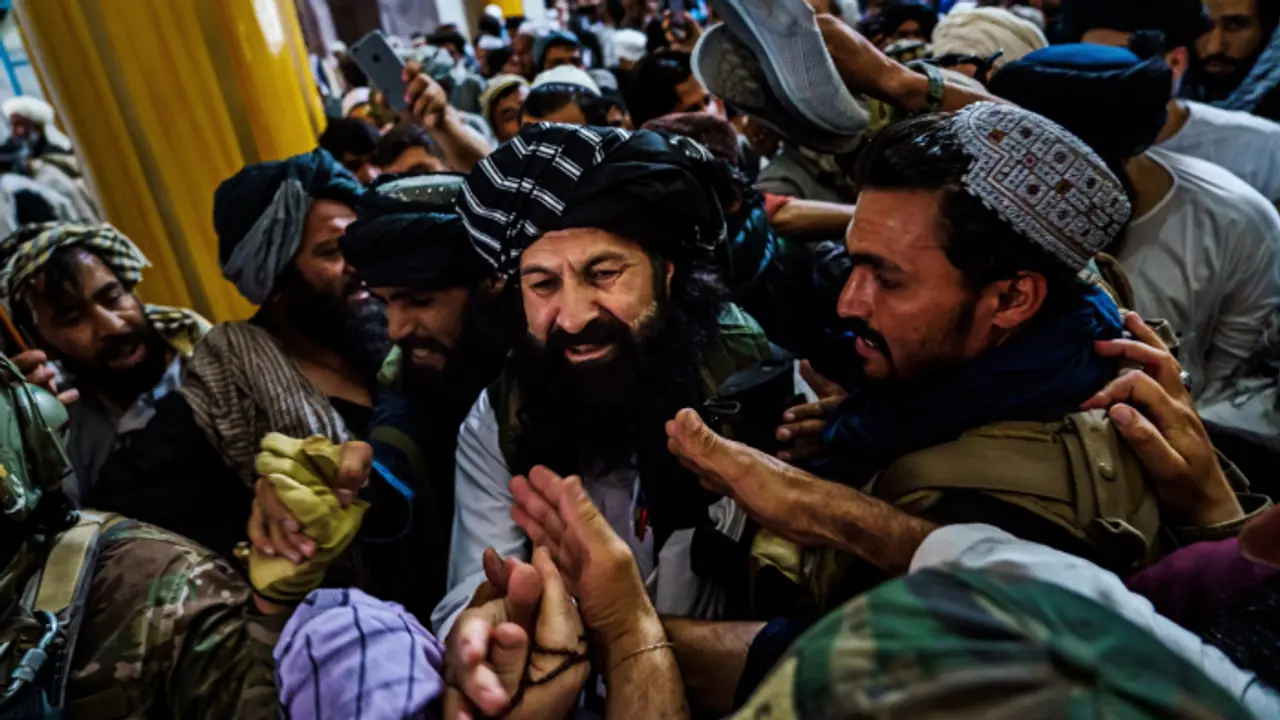The assassination of Khalil Haqqani exposes fissures within Afghanistan's ruling regime, potentially leading to a Haqqani-Taliban split, which could cripple governance, create security vacuums, and ignite civil war.
The December 11, 2024, assassination of Khalil ur-Rahman Haqqani in a suicide bombing by the Islamic State of Khorasan Province (ISKP) marks a critical juncture in Afghanistan’s evolving power dynamics. Khalil Haqqani, a senior figure within the Haqqani Network and the Taliban’s Minister for Refugees and Repatriation, was killed in Kabul—a blow that has exposed fissures within Afghanistan’s ruling regime.

This development raises a pivotal question: Is the Haqqani Network, for long a key faction of the Taliban, charting its own course away from the movement’s central leadership under supreme leader Hibatullah Akhundzada?
Historical Context: Fractured Alliance
The Haqqani Network, known for its operational sophistication and ties with transnational jihadi groups, such as the al-Qaeda, has been a cornerstone of the Taliban’s military and political strategies. Originating in southeastern Afghanistan and parts of Pakistan, the Haqqani Network brought a lethal edge to the Taliban insurgency, pioneering the use of suicide bombings as a tactic. Its integration into the Taliban hierarchy post-2021 was marked by pragmatism, as the group provided a balance of terror and governance to solidify the Taliban’s grip on Afghanistan.
Yet, this partnership has been increasingly strained by ideological and strategic divergence. Akhundzada, ruling from Kandahar, has centralized authority, sidelining influential factions, including the Haqqanis, who wield considerable power in Kabul and eastern Afghanistan. The assassination of Khalil Haqqani has amplified these tensions, exposing cracks that may portend a deeper rupture.
The Assassination and Its Aftermath
The ISKP-claimed suicide bombing, which killed Khalil Haqqani and five others, is the most significant high-profile assassination within the Taliban regime since it seized power in 2021. While the Taliban publicly blamed the ISKP, suspicions of internal collusion have emerged. Sirajuddin Haqqani, the acting Interior Minister and nephew of Khalil, reportedly convened an emergency meeting with his commanders after the attack, fuelling speculation about his mistrust of Akhundzada’s intelligence apparatus.
Reports from the Afghan media suggest that the Haqqani Network may be retreating to its traditional bastions in Khost and Paktia provinces, effectively reducing its presence in Kabul. This move signals a potential strategic withdrawal and highlights the eroding trust between the Haqqanis and the Kandahar-based leadership.
Ideological and Strategic Divergences
Recent public statements made by Sirajuddin Haqqani highlight the ideological rift. Speaking at a madarsa graduation ceremony, he criticized the monopolization of religious authority, stating, “Religion shouldn’t be represented in a way that suggests it belongs solely to me, to the exclusion of others.” This veiled critique of Akhundzada’s governance style, combined with dissatisfaction among Taliban commanders over recent governmental reshuffles, reveals a growing divide.
Akhundzada’s attempts to consolidate power by reassigning key commanders and prioritizing loyalty to Kandahar over Kabul have exacerbated these tensions. According to reports, Akhundzada has explicitly warned Taliban commanders against aligning too closely with the Haqqani Network.
Public Denials and Private Realignments
Despite these developments, Taliban leaders have sought to downplay the rift. Mullah Abdul Ghani Baradar, the Taliban’s Deputy Prime Minister for Economic Affairs, dismissed speculation at Khalil Haqqani’s funeral, asserting, “There’s enough love and friendship among our leaders.” However, the heavily armed security presence and the attendance of rival factions at the funeral emphasise the mistrust and the fragile state of the Taliban’s internal cohesion.
The funeral also served as a stage-managed attempt to project unity. The presence of such figures as Gulbuddin Hekmatyar, leader of Hizb-e-Islami and a known adversary of the Kandahar faction, was a calculated move to counter perceptions of disarray. However, such optics do little to obscure the underlying fractures.
Implications of a Haqqani-Taliban Split
Should the Haqqani Network formally break away, the consequences for Afghanistan’s governance and security would be profound:
-Governance Disintegration: The Haqqani Network administers vast swathes of eastern Afghanistan. A split would cripple the Taliban’s ability to govern effectively, particularly in regions where the Haqqanis wield influence
-Security Vacuum: A divided Taliban would embolden the ISKP and other adversarial groups, potentially plunging Afghanistan into renewed conflict
-Civil War Risks: Competition over resources and territorial control between the Haqqani Network and the Kandahar faction could ignite a new phase of civil war
-Regional Repercussions: Pakistan, for long a supporter of the Haqqani Network, may find its leverage over Afghanistan diminished, complicating its security calculus. Meanwhile, regional powers, such as Iran, China and Russia, would, possibly, recalibrate their strategies in response to a fragmented Taliban
And What Is The Road that Lies Ahead?
The assassination of Khalil Haqqani has brought the Taliban’s internal power struggles into sharp relief. While public statements from Taliban leaders aim to project unity, the evidence of mistrust and strategic realignments suggests a deeper crisis. The Haqqani Network’s potential departure from the Taliban could reshape Afghanistan’s political landscape, leaving the regime vulnerable to both internal and external challenges.
As Afghanistan grapples with these uncertainties, the durability of the Taliban regime—and its ability to maintain a tenuous grip on power—will hinge on its capacity to reconcile internal divisions. For now, the fissures remain, threatening to unravel the fragile equilibrium that has defined the post-2021 Taliban rule.
(The author of this article is a Defence, Aerospace & Political Analyst based in Bengaluru. He is also Director of ADD Engineering Components, India, Pvt. Ltd, a subsidiary of ADD Engineering GmbH, Germany. You can reach him at: girishlinganna@gmail.com)
